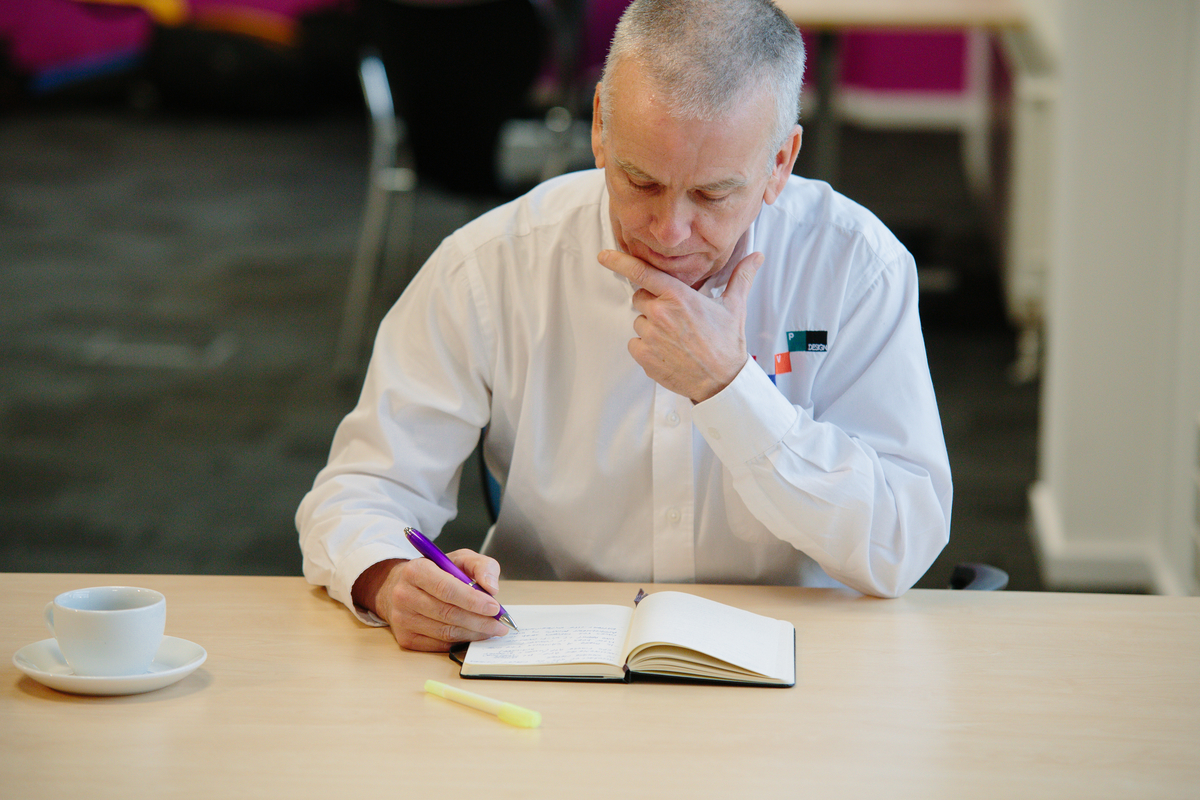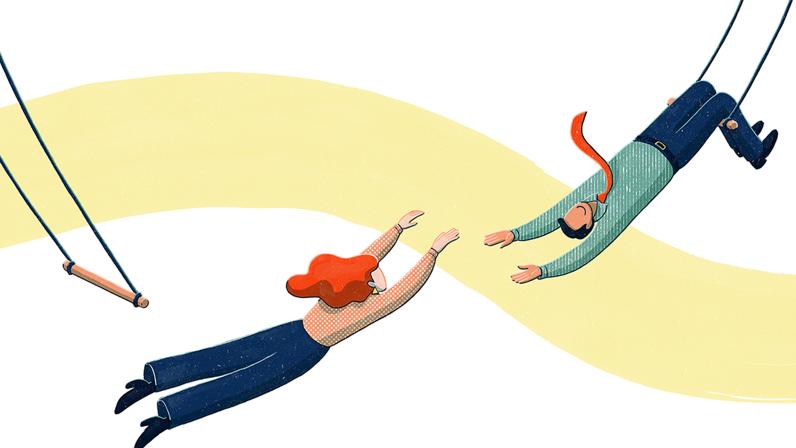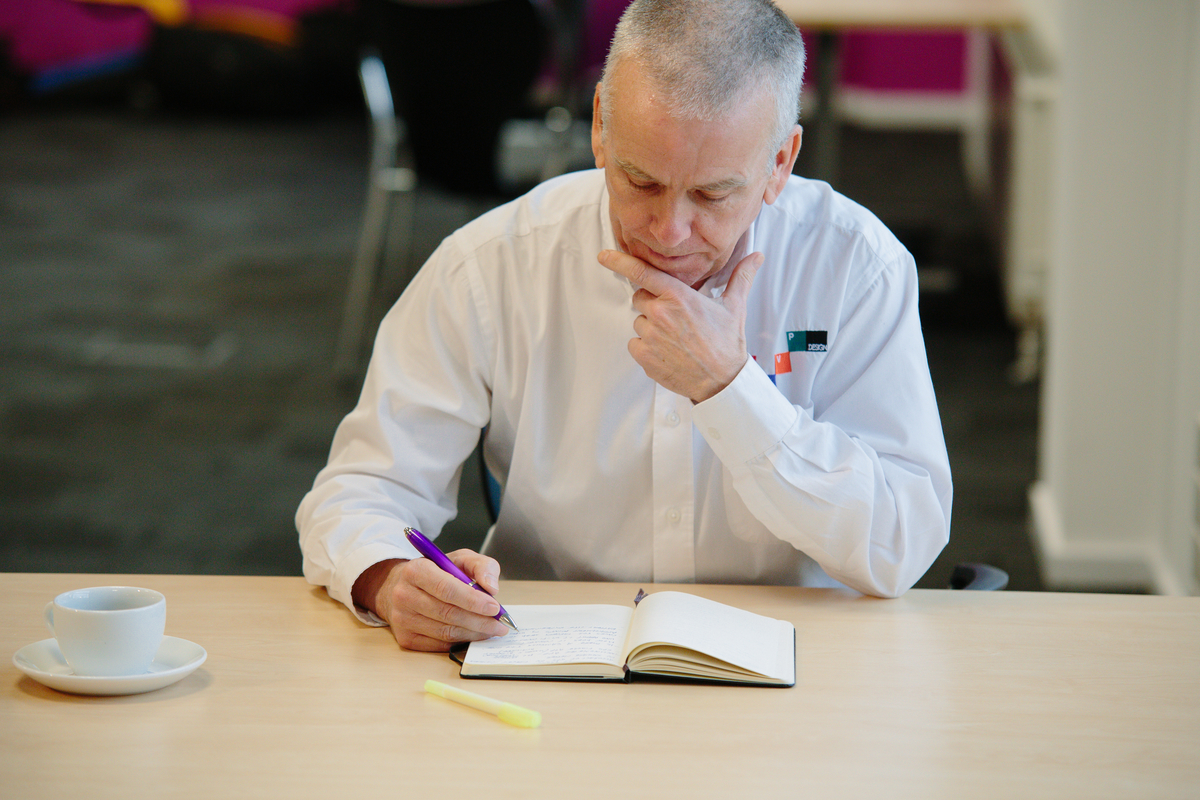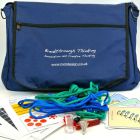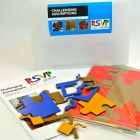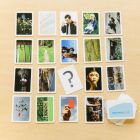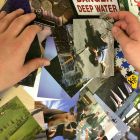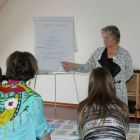Everyone has unique preferences when it comes to learning, but experiential learning is something that benefits everyone. It engages the brain in a way that no other form of learning does, forcing you to think for yourself instead of simply absorbing and regurgitating the materials you’re being presented with.
As for what it can involve, there are as many forms of experiential learning as there are potential experiences — but which are the best? You can’t try everything, after all (life gets in the way), so you need to make a choice about how to invest your time.
Factoring in impact and versatility, creative writing absolutely has to be up there in the top tier of experiential learning methods. You can write stories, try creative takes on non-fiction, or just express your thoughts in anything from a poem to a relaxed blog post. But don’t just take my word for it — here are 5 reasons why you should try creative writing as a learning tool:
You can write whenever, wherever, and whatever
Whether you carry about a laptop, a tablet, or a weathered pencil with a scrappy notebook, you can work on your creative writing in circumstances of your choosing. Get an idea at 2am? You can jot it down and start fleshing it out — night writing can be great. Hit a roadblock during your regularly-scheduled writing time? Take a break and come back to it
whenever you feel like it.
There’s no expensive equipment to justify (you’re going to have a computer regardless, realistically), and no conventional working hours to care about. If you want to attend creative writing meetings, you can, but you can effectively practice it all by yourself.
This freedom means that if you really get hooked on creative writing, it will follow you wherever you go.
As for what you can write, there are no limits. Create whatever you want to. You can write a full story, the first half of a story, or nothing even remotely related to a narrative structure. If you’d like, you can just note down interesting sentences that pop into your head, write isolated dialogue exchanges, or go all-in on haikus. As long as you’re writing in a creative way, you’re learning, no matter what the formal outcome may be.
It teaches you invaluable tenacity
It makes no difference how talented you are: mistakes and difficulties are unavoidable in creative writing. You’ll jot down phrases that don’t make sense, get frustrated at your inability to express yourself clearly, and find yourself stuck waiting for inspiration to strike.
And when you ask for feedback and get criticism, it can cut more deeply because you care about the writing.
What’s more, neither experience nor dedication can render you flawless. Even the creative writers committed enough to end up writing novels inevitably look back on their work and wince at all the errors (Jericho Writers has a good list of the most common). This truth leaves a budding writer with two options: give up altogether (a route that can certainly be tempting), or keep going, learn from those mistakes, and resolve to do better over time.
Assuming you can take that second route, your creative writing efforts will impart a core life lesson: that what matters isn’t what you can or can’t do now, but how you can improve as time goes by. There’s no shortcut or formula for literary brilliance. Creative writing demands vulnerability, then shows you that you can take failure and criticism and continue to grow.
You can reflect reality, create one, or do neither
Fact or fiction? The choice is yours because creative writing isn’t necessarily about outright invention — the creativity may be in the execution of the delivery and the framing. If you want to work through a challenging time in your life by writing about it, you can do so, expressing yourself through articulation. If you want to let your
imagination run wild and fabricate a new reality that obeys rules of your choosing, you can do that as well.
And if you want to just write about something business-suitable with a more relaxed vocabulary and structure, you can do that too. This essentially makes creative writing a learning tool with unlimited potential, particularly since it tends to spark research as you work.
You can start out with a simple idea of what story you want to tell, or what point you’re trying to make, then be drawn away on a tangent during which you learn about the intricacies of medieval armour.
It’s worthwhile solo or as a group effort
Many forms of experiential learning only really work effectively when they’re done solo or in groups, which limits overall usefulness. Not so with creative writing. If you’re working by yourself, you have total control over everything that happens and can proceed at your own pace. What’s more, you can always consult people for feedback as you go.
If you want to work on a group project, that’s also fantastic. You can throw out ideas with friends and follow story or structural threads to see where they lead. You’ll all have varying knowledge levels, but you don’t need knowledge to get involved with creative writing: you mainly need an adventurous spirit and some imagination (and those can be cultivated quite easily). When you finish with a satisfying piece of text that you all contributed to, it brings you closer together.
Communication is integral to almost everything
Whether you’re writing long-form stories, elegant poetry, or just getting your thoughts down in a stream of consciousness with no intended form or goal in mind, creative writing has a powerful impact on your communication skills — it helps you expand your vocabulary, find new ways to express your thoughts, and better understand people’s motivations. The more you write, the more equipped you become to communicate effectively, whether it’s in writing or in speech.
Because communication is a core component of almost every part of human civilisation, this will make your life easier in countless small ways. Your inner voice will get so much richer and more vibrant. You’ll write better proposals, build stronger relationships with your colleagues, and even see wide-ranging benefits in your personal life. Great articulation is a huge asset.
For all of these reasons (and more), creative writing is an engaging and productive form of experiential learning. If it isn’t something you’ve tried before, what do you have to lose by attempting it? You might find that it’s exactly what you’ve been missing.
Thank you to our guest post author Kayleigh Alexandra from Micro Startups. Also, she is a part-time writer at Writer zone.
In the blog I wrote last month I tried to address some of the assumptions about experiential learning that seem to be getting in the way of people including elements of this approach in their programming. It seems that the most pervasive of these assumptions is about the physical spaces that are needed to deliver effective experiential content. To ... Read more...
 My friend and colleague Graham Cook is heading to Florida later this month where he'll be delivering a session at Training Magazine's 'Training 2024' conference and exhibition. His session is titled 'How to Design Behavioral Change Using Experiential Learning Activities'. I'm not going to be alongside him for this conference but that doesn't mean I...
Read more...
My friend and colleague Graham Cook is heading to Florida later this month where he'll be delivering a session at Training Magazine's 'Training 2024' conference and exhibition. His session is titled 'How to Design Behavioral Change Using Experiential Learning Activities'. I'm not going to be alongside him for this conference but that doesn't mean I...
Read more...
 Most good trainers and facilitators I meet tend to have a strongly developed intuition about the needs of others. It doesn't take long for them to get to understand what will help a student to learn, and how learning material needs to be presented to make it easier for that learning to take place. As these trainers and facilitators become more ...
Read more...
Most good trainers and facilitators I meet tend to have a strongly developed intuition about the needs of others. It doesn't take long for them to get to understand what will help a student to learn, and how learning material needs to be presented to make it easier for that learning to take place. As these trainers and facilitators become more ...
Read more...
 It’s a question I often read around this time of year, and it inevitably provokes responses from extremes of opinion. There are those who go full-on consumerist and suggest expensive cars, jewellery, homes etc, ideas that are balanced by those who reject these ideas and suggest good health, happiness, close family etc.
So, as I&rsquo...
Read more...
It’s a question I often read around this time of year, and it inevitably provokes responses from extremes of opinion. There are those who go full-on consumerist and suggest expensive cars, jewellery, homes etc, ideas that are balanced by those who reject these ideas and suggest good health, happiness, close family etc.
So, as I&rsquo...
Read more...
 There were some interesting responses to last month’s blog which considered how to handle a session where your group are unsuccessful at completing the experiential task you have set them. For some people this was accepted as very sound advice, and it seems to have taken away some of the ‘fear of failure’ that was out there. ...
Read more...
There were some interesting responses to last month’s blog which considered how to handle a session where your group are unsuccessful at completing the experiential task you have set them. For some people this was accepted as very sound advice, and it seems to have taken away some of the ‘fear of failure’ that was out there. ...
Read more...

